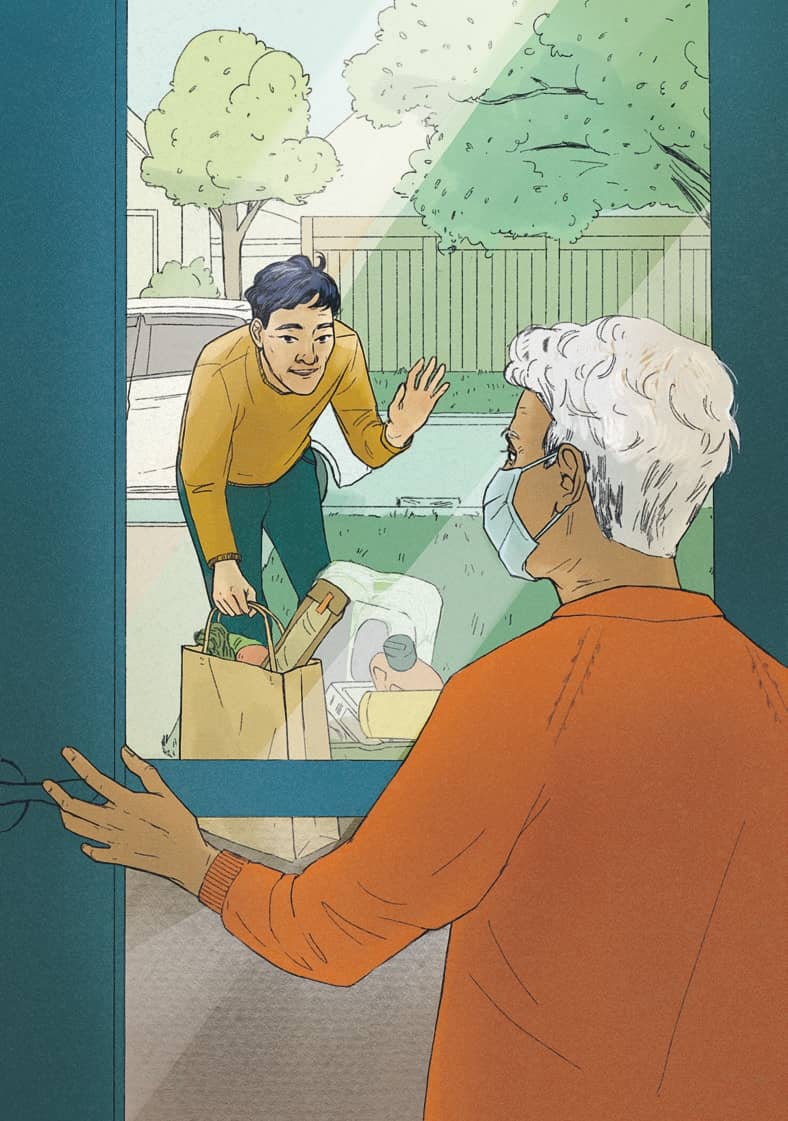
Yet there are some evolutionary reasons why human altruism should differ from that of other species. One popular hypothesis states that caring for others developed from parenting behaviours. Since human babies are born particularly vulnerable (thank you, big brains), they require unusually high amounts of care—just ask any under-slept new parent. To ensure that mothers and fathers won’t abandon these needy creatures, nature equipped us with two systems: one reward-inducing and the other stress-reducing.
Snug in the middle of our brain is a grape-sized area known as the insula, which is activated by such things as helping others, donating money to charity and, yes, caring for kids. Additional reward-related brain areas, the septal area and ventral striatum—the very same ones that light up when you find a winning scratch-and-win card— also buzz with activity when you take care of others. In other words, parenthood and other forms of caregiving are wired to the brain’s reward system.
この記事は Reader's Digest Canada の July/August 2020 版に掲載されています。
7 日間の Magzter GOLD 無料トライアルを開始して、何千もの厳選されたプレミアム ストーリー、9,000 以上の雑誌や新聞にアクセスしてください。
すでに購読者です ? サインイン
この記事は Reader's Digest Canada の July/August 2020 版に掲載されています。
7 日間の Magzter GOLD 無料トライアルを開始して、何千もの厳選されたプレミアム ストーリー、9,000 以上の雑誌や新聞にアクセスしてください。
すでに購読者です? サインイン